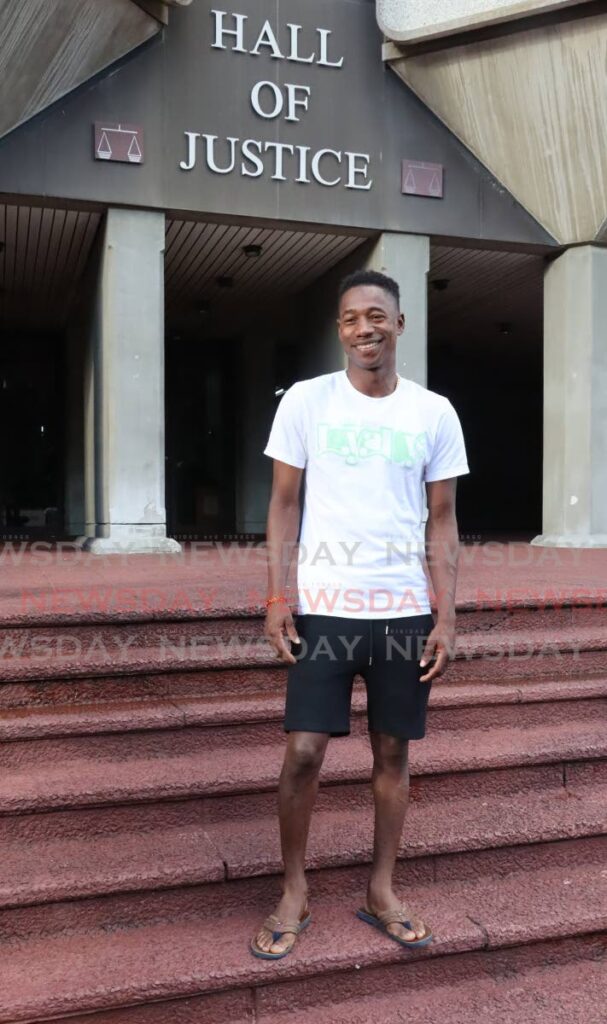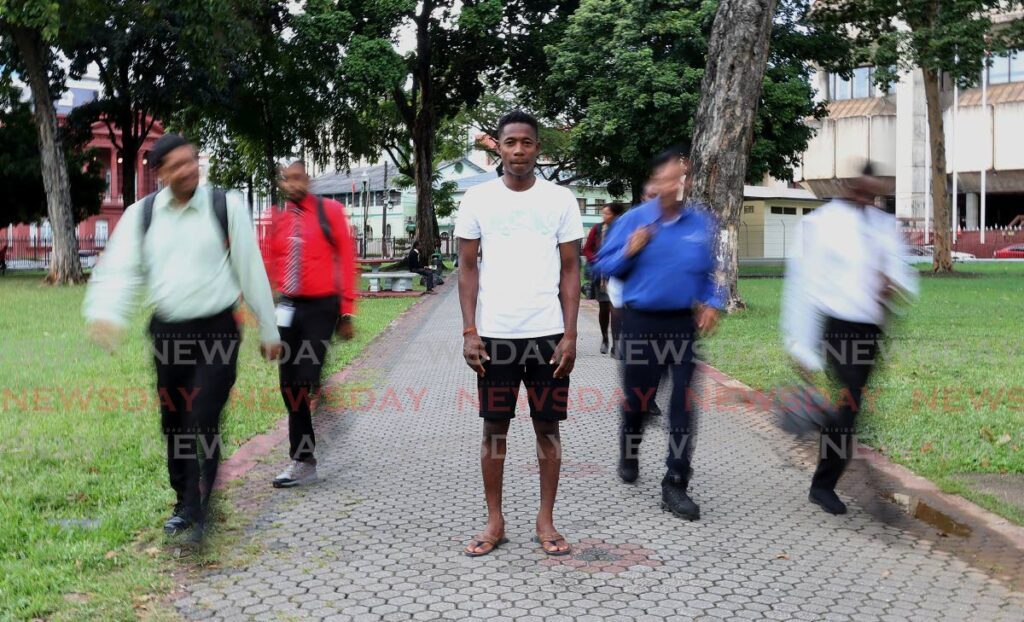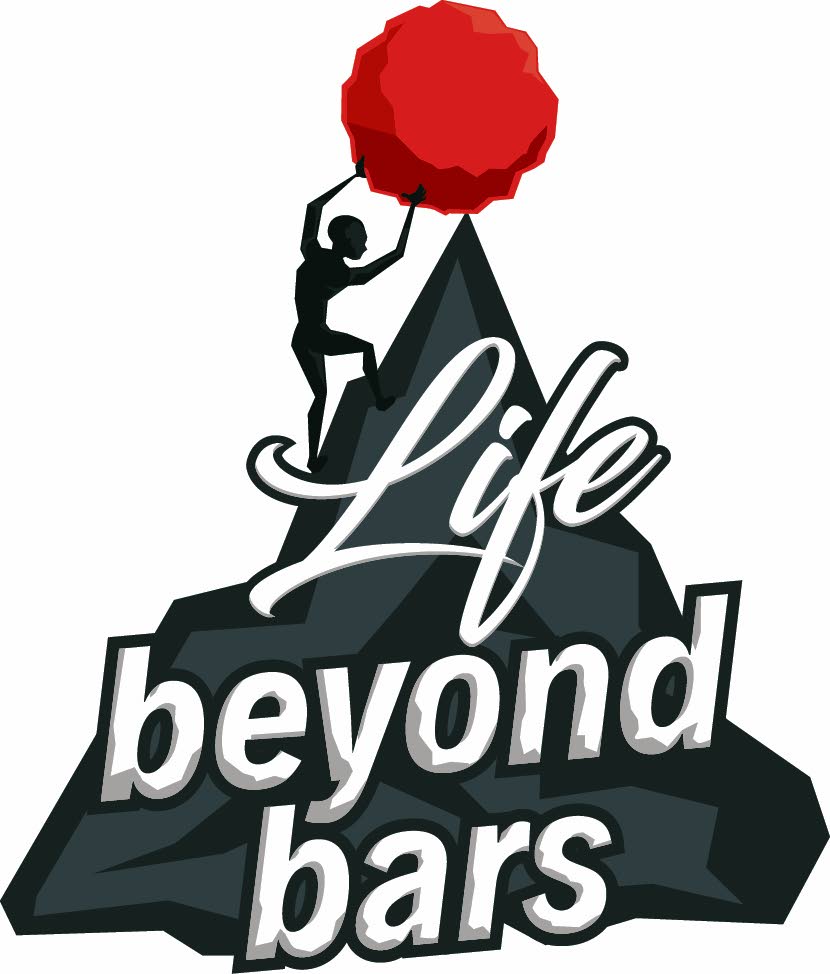How faith kept me from straying

No one ever expected them to succeed. Many people were sure they would end up back behind bars.
Sunday Newsday tracks the progress of eight men who won their cases or got out on bail. Their lives outside prison are featured in a series on inmates from Debbie Jacob’s CXC English classes and debate teams.
Why did these men make it when so many others failed?
Read their stories of redemption, rehabilitation and reinvention in the Sunday Newsday.
Part VI
Debbie Jacob
When the news spread from the magistrates court back to Port of Spain Prison that Darrem Cheltenham had won his case, inmates rattled the bars, stomped their feet and yelled the customary, “Out there! Out there!”
The inmates’ celebration on June 7, 2017 was so loud, it startled officers. They thought a riot had erupted.
Cheltenham, a thin, fragile-looking man with a deeply confident voice, had left his mark in prison. Everyone knew the story of this inmate who had gone to a police station to clear his name,which had been called in a murder case – but was arrested instead and sent to prison. His lawyer had produced a video of Cheltenham at an office Christmas party when the murder occurred, but it took 4 1/2 years for his case to come before the magistrate.
He was 20 when he was arrested.
Cheltenham, now 33, always liked reading. In prison, books shaped his future in unimaginable ways.
“I read a lot in prison – motivational books, history and a biography called The Life and Legend of Saladin, by Jonathan Phillips,” said Cheltenham. (Saladin, known as a merciful leader, was the first sultan of Syria and Egypt. His capture of Jerusalem from the Christians led to the third Crusade in 1189 and unification among Sunnis and Shi’ites).
Cheltenham’s cellmates, who were Muslim, saw him reading.
“I knew about Islam, and I was always interested, because I keep an open mind about everything. My cellmates couldn’t read and they asked me to read the Quran for them. It opened up my mind.”
Faith began to shape Cheltenham’s life as he read to his cellmates.
“I always believed there is a creator, and suddenly I felt I understood every action in life. In Islam, you pray five times a day and thank God for every breath you take. You feel God in your life every minute of the day.
"I needed that strength. Soon after accepting Islam in the month of Ramadan, I got a court date after waiting over four years.”
Cheltenham looked around for positive, uplifting experiences in prison, joined a computer and maths class, the Wishing for Wings PVC furniture-making class, CXC English class and the prison debate team.

“English class gave me peace of mind. It got me away from the disadvantages and conditions. I prayed for class time to come. I was learning, understanding and believing in God, which helped me emotionally and physically.”
Cheltenham said he remembers that first prison debate in 2014, “like it was yesterday.”
The topic was “Should parents use corporal punishment”?
His classmate, the late Akili Charles, known for his case against the State, which won the right for murder-accused to apply for bail, appeared to have put the side against corporal punishment ahead.
Then, a debater posed the question, “Doesn’t corporal punishment instil fear in children?”
Cheltenham answered, “Yes, it should. If you tell a child ten times not to pull a pot of boiling water on him, and he doesn’t listen, you want him to feel fear.”
The audience of inmates erupted in applause, and the side supporting corporal punishment won. Cheltenham created a buzz that propelled the prison debates into an annual event and grew to include all ten of the nation’s prisons.
His love for his son, just one when Cheltenham entered prison, had inspired his argument.
When he came out of prison, Cheltenham always supported prison debates. He attended them and served once as a judge. He completed a landscaping certificate at UWI and opened a maintenance and landscaping business with his uncle. He got a piece of land to farm in Chaguanas from the Ministry of Agriculture.
For two years he applied for jobs and couldn’t get work.
“The background check is always difficult. That’s why I started to do landscaping and agriculture. It’s hard coming out of prison to get people to trust you. Over time you can earn trust by showing that you really want this job and then by proving yourself.”

Cheltenham became a distributor for Kiss Bakery. In 2019 he and his wife, Keneil, opened Loyalty Apparel, printing designs on pants, jerseys and glass.
His father gave him a piece of land next to his childhood home in Morvant, and Cheltenham is building a brick house. He and his wife currently live in Chaguanas.
His parents had split up when he was a child, “...but they were always good, supportive parents,” he said.
“My son is my biggest motivation in my life. I never wanted him to have the stigma of having a father in jail. I always wanted to prove I was innocent, and prison was never the life I wanted for myself. I showed that through working hard and building a proper foundation for my life. I just got caught up in the system.”
Cheltenham thinks about his time in prison.
“I learned that not everybody you see in prison is a bad person. Don’t judge people by their cover. I learned patience. It’s hard to get me vexed out here for small things. I always tell myself, ‘I was in prison. I was in tougher situations. I will just laugh and move on. I know better.'”
Islam plays a major part in his life.
“I tell anyone, you don’t need to follow me and choose Islam. I had my testimony and my guidance. I saw what happened to me – how my whole life changed after accepting Islam.
“When I pray sincerely, I feel different vibes. No one is perfect, but I try to better myself as the day goes by. I wasn’t born a Muslim. I’m still practising and learning. I go to Juma on Friday.”
Moving on from prison, he said, is “a mind thing. When I get work, I always prove myself as a good worker. You’re always watched 100 times more and always not trusted 100 times more. You have to earn trust.”
He said prison was the worst experience of his life; then there was the three months he spent in Caura Hospital during the covid19 pandemic in 2020, when he was diagnosed with a lung disease.
“I saw people dying around me in the hospital. My faith helped me get through a scary situation. I prayed so much. I couldn’t come out of there or see family. It felt like a next jail.”
He couldn’t work for six months after his hospital stay, but he received part of his salary from Kiss Bakery to pay bills. He still undergoes treatment.
Through all of his challenges, Cheltenham stays the course.
“You must separate yourself from negative elements. They will always be around you. Make something positive. Know the system will always try to taint you. Try not to be influenced by the streets because it have nothing out there.”
Instead of turning to outside influences, Cheltenham advises, “Stay close to your family. They are what matters.
"My family is my motivation. Plenty times I want to give up. and I think, ‘I have my wife and son to take care of. I have bills to pay.’
“If I wasn’t positive, I don’t know where I would be today. Plenty of my friends I made in jail came out, got drawn back into crime and got killed. Government makes it real hard. It’s tough out here. No joke.”
He believes life will always be a bigger challenge when you come out of prison, but believes trust is something you build – like you build a house brick by brick.
“You must have trust in yourself first for someone to trust you. Know you have the opportunity to change your life.”
For Darrem Cheltenham, life is all about having faith.


Comments
"How faith kept me from straying"